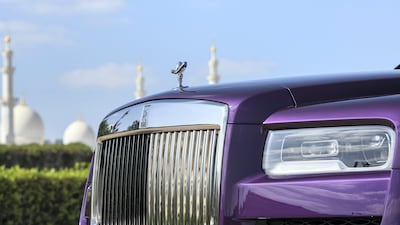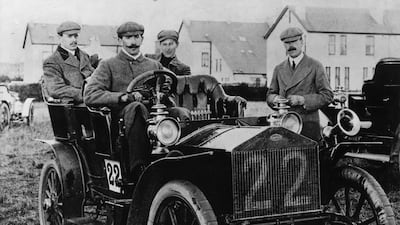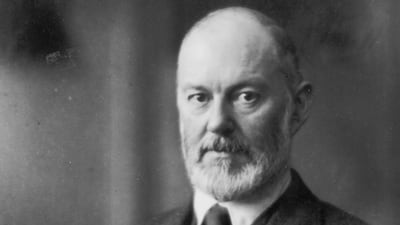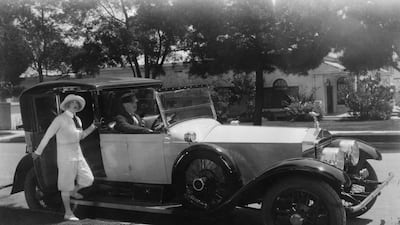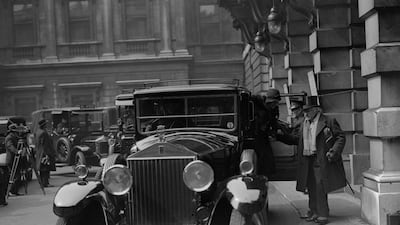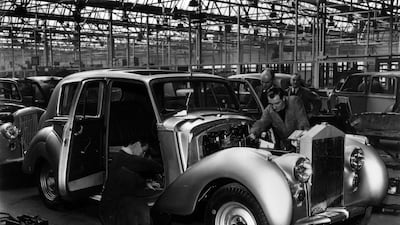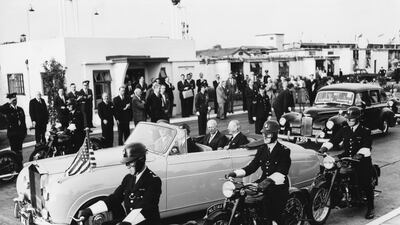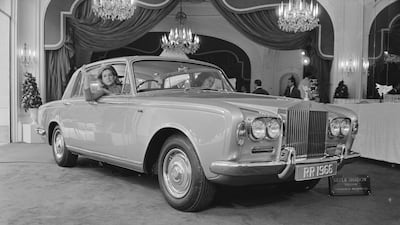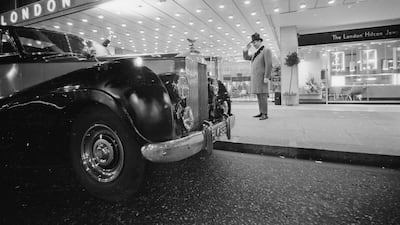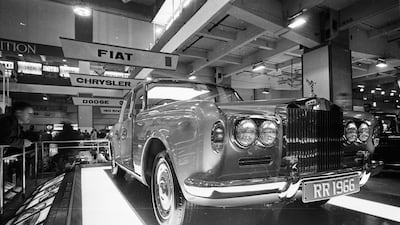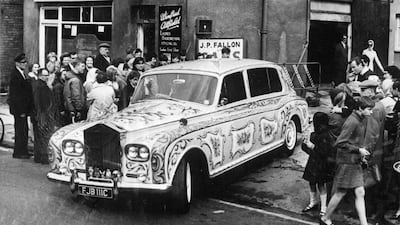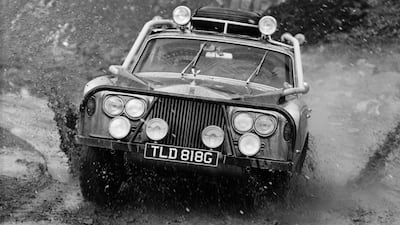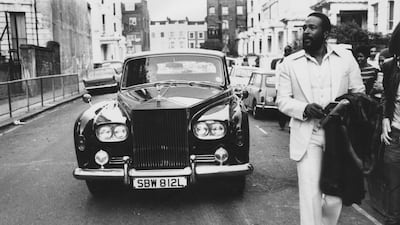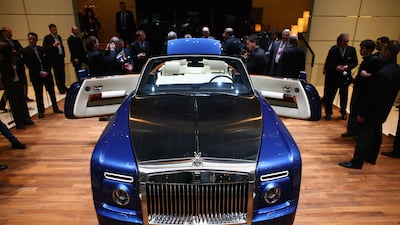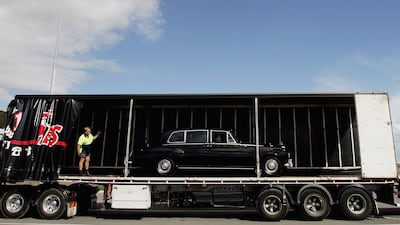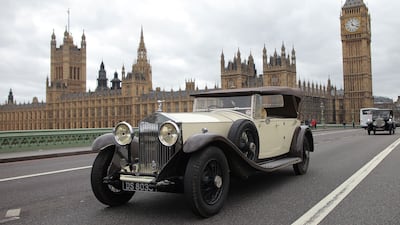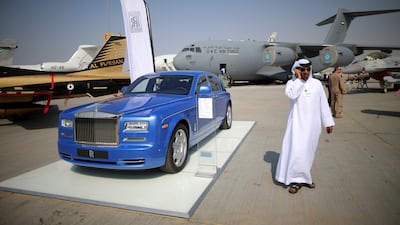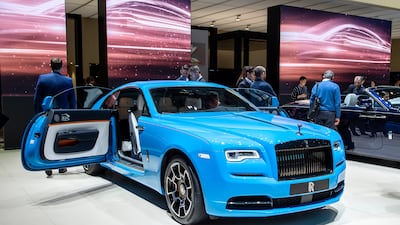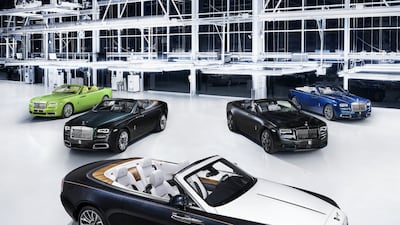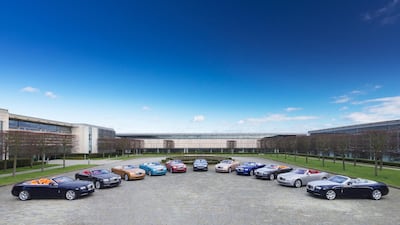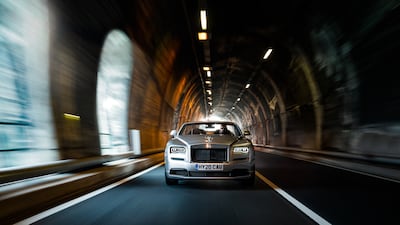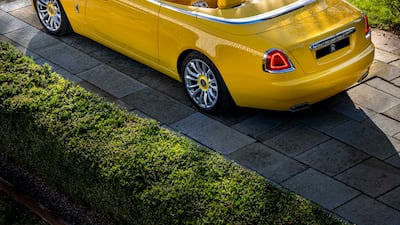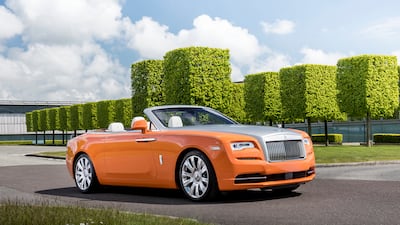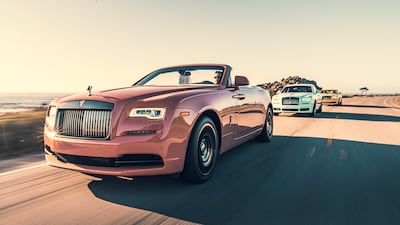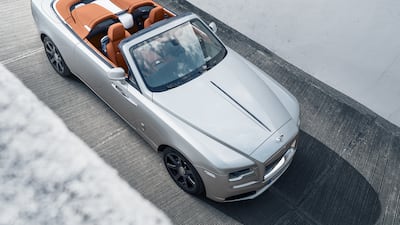When Charles Royce and Henry Rolls met for the first time on May 4, 1904, it's unlikely either of the partners envisioned the high-end brand that would still bear their names 119 years later and the car company that would be building more than 6,000 ultra-luxury cars a year.
Rolls-Royce announced this week it sold more cars last year than ever before. All of the 6,032 units that were delivered to customers in 2023 were unique in one way or another, thanks to the bespoke method of building which leaves considerable room for personalisation.
"The record level of bespoke commissions, both by volume and value, also underlines our position within the luxury sector, offering our clients opportunities for self-expression and personalisation they cannot find anywhere else," said Rolls-Royce chief executive Chris Brownridge.
Prof Peter Wells at Cardiff Business School notes that within the automotive industry as a whole, and throughout most of its history, there has been a trade-off between making different models and giving customers more options within those lines and the higher costs involved with allowing those options, away from mass-produced standardised models.
"Higher levels of differentiation within model ranges, and more options for customers, increases design, supply chain, production and marketing costs, but can also generate higher revenues per unit," he told The National.
"For Rolls-Royce Motors, this basic challenge is the same: where to standardise and where to differentiate at an acceptable price point while retaining those core brand values.
"Rolls-Royce, in terms of the aesthetics of the car, are indeed strongly orientated towards customisation, and requires a highly skilled workforce to deliver this distinctiveness."
Across the class divide
Normally, a pair such as Henry Rolls and Charles Royce would have been unlikely to meet. One was privileged; the third son of a lord, educated at Eton and Cambridge University, while the other was born into a modest household in Peterborough and started working as a paper delivery boy when he was nine.
But both were brilliant engineers and motorists and when a shareholder in Rolls' company introduced them in Manchester, the road to the creation of the world's most famous luxury car maker was paved.
Perhaps the unsung hero of Rolls-Royce's early development was Claude Johnson. He had set up one of the UK's first car dealerships with Mr Rolls, which imported models from Europe, specifically from France and Belgium.
He became the first managing director of Rolls-Royce and while Mr Rolls and Mr Royce concentrated on perfecting the engineering of the new cars, Mr Johnson, who was considered a publicity genius, concentrated on building a brand that would become synonymous with high-end luxury. Indeed, he was so influential in the guidance of the fledgling company that he is often referred to as the hyphen in Rolls-Royce.
Bespoke is key
Nearly 120 years later that fledgling is soaring to new heights, not just with impressive production numbers but with plans to expand the operations at its facility near the southern English city of Chichester.
In the Middle East, Rolls-Royce deliveries were up 35 per cent in 2023, compared with the previous year, thanks largely to a booming bespoke business.
Building cars not just with the customer in mind, but with their creative input has always been a hallmark of Rolls-Royce production, and the bespoke business has meant each car is unique to its owner in some way.
To ensure the worldwide sales are supported, Rolls-Royce has opened "private offices" in overseas locations, the first of which was in Dubai. These centres allow clients to maintain a proximity to the company's designers during the building and personalisation process.
"While our region has always served as an inspirational canvas for bespoke creations, this year, in collaboration with the Private Office Dubai, we continue to be the leaders in bespoke commissions," said Cesar Habib, regional director for Rolls-Royce Motor Cars in the Middle East and Africa.
"Serving as a sanctuary for creativity and design, the Private Office Dubai has not only brought our clients' imaginations to life but has also played a pivotal role in immersing them in the enchanting world of Rolls-Royce Motor Cars; continuing to forge extraordinary relationships."
While North America and China are the company's two big sales areas, Prof Wells told The National that the Middle East remains very important to Rolls-Royce Motors.
"There are sufficient affluent clients who are not as concerned as those in other markets about their visible displays of wealth," he said.
"The Middle East is expected to remain a strong market for a long time, even as the brand makes the transition to electrification."
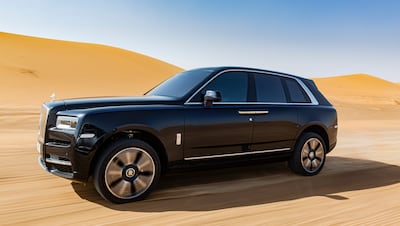
In terms of models, the Cullinan SUV was, again, the most requested Rolls-Royce, with the smaller saloon model, the Ghost, coming in second.
Across the world, it was a golden year for Rolls-Royce. Aside from the record number of sales, the bespoke business was better than it has ever been, both in terms of units and value.
Turning on electric
Rolls-Royce brought production of the Wraith and Dawn models to a halt in 2023, as previously planned, while the company steered itself into an electric future with the unveiling and first sale of the Spectre.
The first all-electric Rolls-Royce model in history attracted enormous interest and initial demand meant a solid start to the Spectre's order book stretching to 2025.
The switch from Dawn and Wraith production to the Spectre is a definite sign of the times. The final model in the Black Badge Wraith Black Arrow Collection rolled off the production line in 2023, bringing to an end the making of V12 coupes at Goodwood and heralding the advent of electric.
Meanwhile, while the modern electric Spectre is making a foothold, when it comes to ultra-luxury, the Phantom continues to command the highest standard price.
Change and the future
Change at Rolls-Royce also came in the boardroom in 2023, as Torsten Muller-Otvos stepped down after 14 years in the driving seat, the longest tenure of a chief executive since Claude Johnson. He was replaced by Chris Brownridge, who was previously the head of BMW UK. The German motor giant is, of course, the parent company of Rolls-Royce.
If 2023 was a year of change, 2024 promises more of the same.
New Private Offices are expected to be opened in North America and South Korea this year.
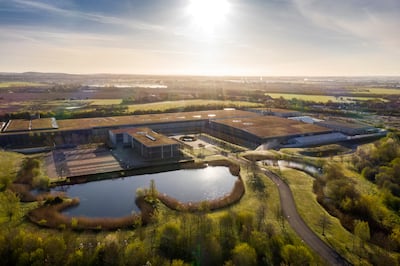
But the largest change for Rolls-Royce Motors will come on home soil – the expansion of the Goodwood plant near Chichester, a process that will significantly increase the size of the facility, near the village of Westhampnett, the only place in the world where the luxury cars are built.
Rolls-Royce purchased the land for the new development, which lies adjacent to its current 17-hectare site, in 2022, and last year filed for planning permissions.
By expanding the footprint of the manufacturing facilities, Rolls-Royce said it plans to "enhance and extend the marque’s bespoke and coachbuild capabilities as well as support production of its future all-electric product portfolio".
An expansion of the production facility has been revving up for some time, not least because the luxury cars have been built exclusively at the Chichester site since 2003. In that year, 300 staff produced 299 cars. Twenty years later, 6,032 Rolls-Royces rolled off the production line, created by more than 2,500 staff.
Rolls-Royce has consulted with local people over the building of the new facilities and while there have been several objections, mostly over increased traffic levels and noise during construction and beyond, the planning application is proceeding – a follow-up archaeology survey on the site is currently under way.
Socioeconomic contribution
Last year, the London School of Economics (LSE) published the results of an eight-month study of the socioeconomic effects of the Rolls-Royce Motors plant at Chichester, both locally and nationally.
The LSE calculated that between 2003-2022, Rolls-Royce contributed £4.67 billion ($5.95 billion) to the UK economy, with £545 million in 2022 alone. Of that, £113 million is estimated to have found its way into the local economy of the county of West Sussex.
The LSE report also stipulated that 7,403 full-time jobs across the UK were supported by Rolls-Royce's activities in 2022, including 2,300 directly employed at the Chichester facility.
"We’ve seen a whole generation of quality jobs and cutting-edge skills created over the past 20 years, and I can’t wait to see what the next 20 will hold as Rolls-Royce continues to expand and grow,” said Gillian Keegan, the local MP and UK Education Secretary.
'Pure luxury'
Nonetheless, some analysts say that the challenge Rolls-Royce now has is balancing its expansion with the requirement to keep its operations unique and its products customised and, of course, luxurious.
Former chief executive, Torsten Muller-Otvos pointed out that Rolls-Royce Motors is not "and never will be a volume manufacturer" and that it has "never put style above substance'". For its new facility it is putting customisation at the centre of its future growth.
For David Bailey, professor of business economics at the University of Birmingham, the space that Rolls-Royce provides its clients to co-design their requested models is key to the company's business model.
The bespoke design team that brings clients' dreams to life had an exceptionally busy 2023, with models that incorporated hand-perforated leather seats, celestial animations and three-dimensional sculptural elements, engraved artworks, several new paint processes and the first commission to bring a unique scent into the vehicle.
For example, the bespoke team spent hundreds of hours creating embroidered artwork, based on rose blooms and four different species of butterfly on the interior of the doors and roof of the Rose Blossom Phantom.

Elsewhere, the effect of a total solar eclipse was recreated across the roof of the Black Badge Ghost Ekleipsis Private Collection, with an animation that remains visible for precisely seven minutes and 31 seconds – the longest possible duration of a total solar eclipse.

"The ability of customers to effectively co-design the car with Rolls-Royce to create a unique offering means that customers are willing to pay a very high price for exclusivity and uniqueness," he told The National. "That makes the firm particularly profitable.
"Rolls-Royce is never going to be a mass producer or even a premium producer," he added.
"It's pure luxury. That limits the size of the market especially in the context of a bespoke service, but as entrepreneurs in emerging markets become wealthier there are new opportunities for Rolls-Royce, especially as it has a fantastic global brand."
